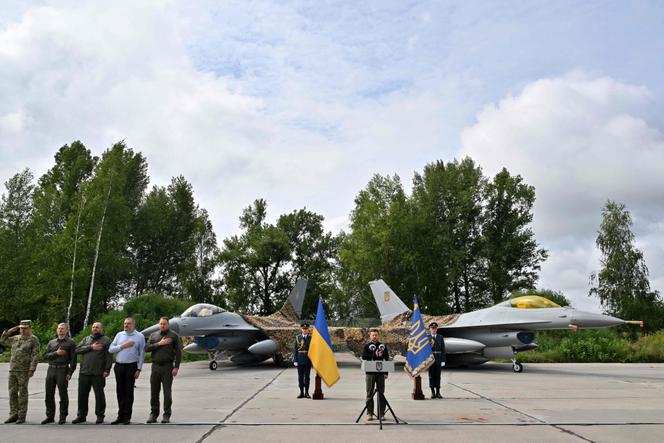


Ukraine had been waiting for them for over a year. On Sunday, August 4, Ukrainian President Volodymyr Zelensky confirmed the presence on Ukrainian soil of the first F-16s, the American-made fighter jets promised by several allied countries since the summer of 2023. He did not specify their number but said it was "not enough" and added that Kyiv was expecting "additional" deliveries.
Despite their symbolic significance, many experts now think that the likelihood the F-16s will upset the long war of attrition that the Russians and Ukrainians have entered into is highly uncertain, given the many other parameters that now come into play.
While the F-16s may, for example, enable Kyiv to strike Russian forces on the ground further behind the 900-kilometer front line, there is no guarantee that they will quickly be able to neutralize Moscow's planes, which have been dropping devastating glide bombs over Ukraine for months. While its allies promised to deliver 90 aircraft, this process will take several years. The United State also pledged to equip these F-16s with "at least the critical volumes" of weaponry. But the allies will then have to agree to provide the rest by purchasing this ammunition from the Americans.
"[The F-16 is] an important addition. It's not in itself changing the war," Norwegian Foreign Minister Espen Barth Eide told the Wall Street Journal on July 30. "We're not out of the tactical military impasse," judged Elie Tenenbaum, the director of the French Institute of International Relations's Center for Security Studies in a July 9 interview on the podcast Le Collimateur, after returning from a research trip to Kyiv.
Just over a year after the failed counter-offensive Ukraine launched in the summer of 2023 to retake the territories annexed by Moscow in February 2022, the reality of the balance of power between Russians and Ukrainians is increasingly shrouded in fog.
"We lack precise numbers. Both sides have communication strategies and neither can be trusted," said Joris Van Bladel, a specialist in Russian military affairs and senior associate at the Egmont Institute, Belgium's Royal Institute for International Relations. "A few months ago, I was very pessimistic about the Ukrainians. But a lot also hinges on the outcome of the American elections. The only thing that's for sure is that we're in a war of attrition, where knowledge of the enemy is not as important as physical strength, and whoever can hold out the longest will win."
You have 78.83% of this article left to read. The rest is for subscribers only.
